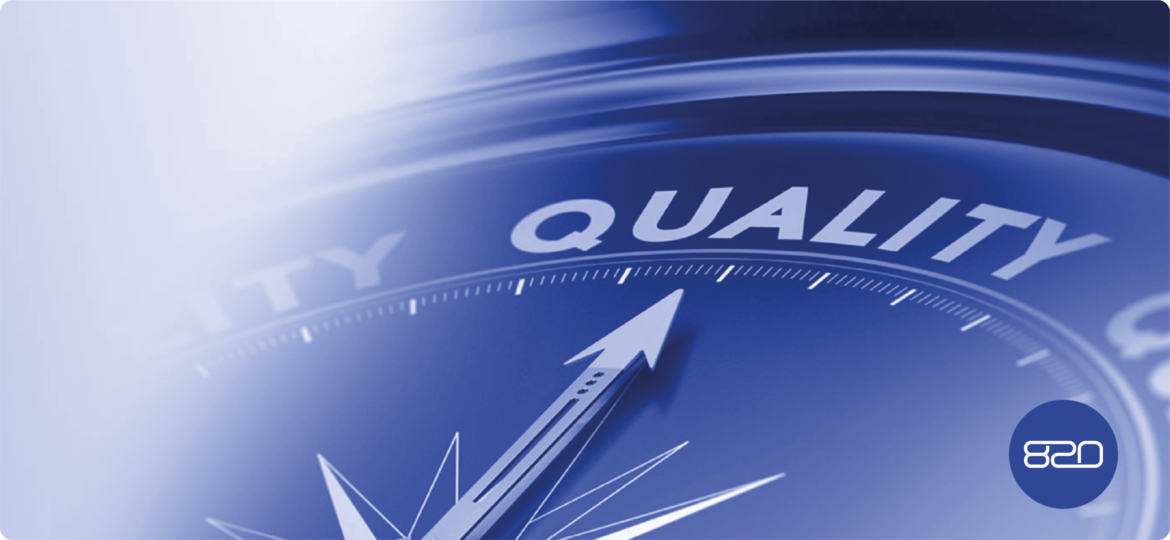
“Quality is satisfying the customer’s needs and exceeding his own expectations by continuing to improve.”
WE Deming, engineer and business management expert essayist. Creator of the famous “Deming Cycle” (Plan-Do-Check-Act) during his consultancy period in Japan during the 1950s, his service of studies on the improvement of production in the United States of America during World War II.
WHAT IS ISO 9001: 2015?
-
ISO 9001: 2015 is a voluntary international certification.
A company that decides to get certified improves its image on the market compared to unqualified companies. The goal is to study, with the help of a national certification body, a Quality Management System suitable for one’s work environment, based on standards that indicate how to achieve the results promised to the customer.
Once certified, this new standard permeates the company. For Eight Twenty, the ISO 9001 standard represents a commitment that we have proudly maintained for years: to continue to improve our organizational reality, without ceasing to evolve and always pursue new goals . In this way we can:
- Give the greatest number of guarantees for our customers and partners;
- Allocate internal resources in a conscious way so that they create maximum value.
HOW IS ISO 9001 CERTIFICATION OBTAINED?
This is a path to be undertaken with a certifying body. The goal is to obtain a set of processes in close relationship with each other, aimed at providing solutions that constantly meet the defined requirements.
Once the entity has been selected and involved, an analysis of the corporate identity is started to identify and analyze the internal “non-conformities” that could cause company inefficiencies, the 20% which generates 80% of the inconveniences.
With this information, a Quality Management System (QMS) is created, which collects documented policies, processes and procedures that indicate how a company creates and delivers products or services to customers.
The QMS is tailored to the needs of the company, referring to the set of guidelines of ISO 9001, to ensure that no important and necessary element for success is overlooked. An organizational choice capable of making a difference, through a definition of certain working methods with a responsibility for the controls and monitoring of activities.
WHAT CHANGES WITHIN A 9001 CERTIFIED COMPANY?
The changes for a certified company are numerous.
- Operational reorganization : when setting up the system, the company must carry out a reorganization of internal processes in order to improve the flow of information that must arrive correctly from the single process to all organizational functions.
- Processes and procedures: procedures must be defined for each company activity with the definition of an effective leadership. The contribution of the team is essential to find the right solutions to improve the process.
- Risk analysis and mitigation: When defining a new job, the ISO requires a very detailed analysis of feasibility, costs related to the acquisition of the new job and risks.
- Control and monitoring: set up and define certain working methods with responsibility for the controls and monitoring of activities.
WHEN DOES ISO CERTIFICATION ENGAGE A SYSTEM OF EXCELLENCE?
The ISO 9001 certification provides the necessary tools to improve and consolidate relationships with existing customers and opens the market to new customers both nationally and internationally.
A Quality Management System can be a valuable ally of business productivity. Taking full advantage of its QMS (Quality Management System), it has the possibility to:
• Improve products or services;
• Reaching the objectives in a shorter time;
• Getting better and better results in terms of resource allocation (time, money, skills and so on).
For a company ready to adopt its QMS, the doors open to a competitive advantage acquired and maintained with awareness by the whole company.